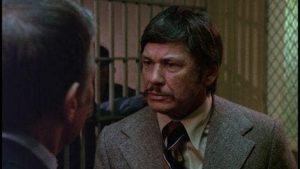ANYONE who thinks Clint Eastwood is a less than average actor hasn’t seen many Charles Bronson films.
The late Bronson was an unlikely box office action star during mainly the 1970s who likely gave meaning to the term ‘sleepwalking through a role’.
Apart from when he was chasing , fighting or killing somebody on screen, which was fairly often to be fair, Bronson could have been brushing his teeth clad in PJs and slippers when called on to demonstrate any kind of emotion.
That includes his signature role as the avenging everyman in Michael Winner’s controversial revenge drama Death Wish from 1974.
It’s actually strange because at the start of his career, Bronson did provide glimpses of talent with small supporting turns in three 1960s classics – The Magnificent Seven, The Dirty Dozen and The Great Escape.
Perhaps the lack of advancement was also due to the fact that Bronson and others had to work throughout the ‘70s in the shadow of Eastwood, in particular his enduring character, the stoney faced and taciturn, ‘throw away the rule book’ police detective Harry Callaghan in the Dirty Harry films.
Bronson’s 1973 effort The Stone Killer is an interesting but flawed attempt with Winner to create their own right-wing anti-hero in detective Leo Torrey (not quite the same ring).
Dirty Harry (1971) and its sequels still remain highly watchable, but The Stone Killer is definitely a dated product of its time.
Leo is actually a fairly standard lawman who almost by happenstance has to stop a mafia don from causing a new war using former Vietnam War veterans turned mercenary killers for hire.
The first thing you notice is the overly-dramatic music score which remains constantly annoying through key moments of the film. There is also a very lazy slab of early exposition that does its best to actually confuse rather than inform the audience.
The film presents important aspects of the period, including drug culture, the rise of black activism and police brutality, but has nothing important to say about any of them.
On the plus side,the action sequences are quite well staged, including a car/motorcycle chase scene that is much better than it should be thanks to the complete absence of any computer-generated trickery.
The other Bronson/Winner film is The Mechanic from 1972 which may be the best of that loose trilogy.
